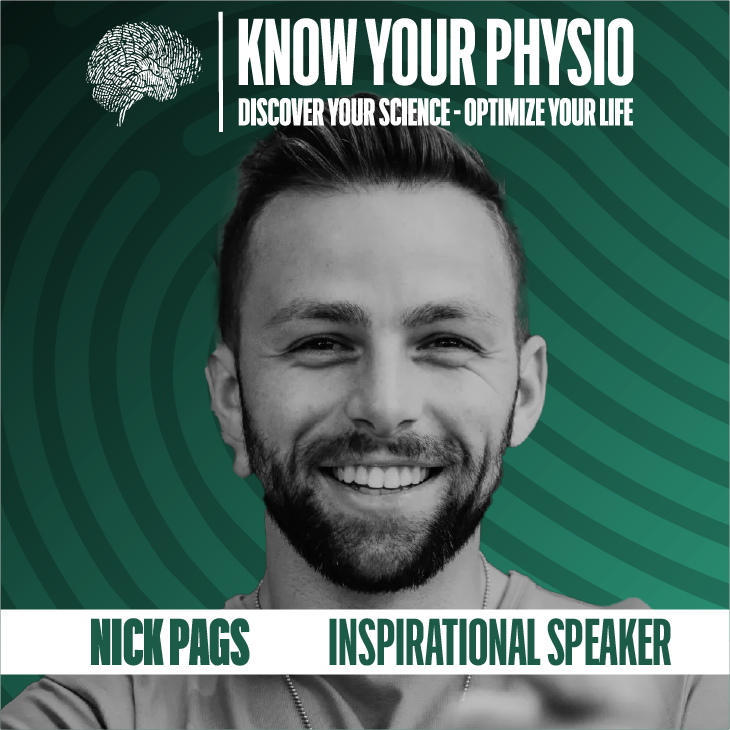
Summary (Nutrition and Mitochondria)
Dr. Emily Werner, a seasoned professional in the field of nutrition and exercise, joins us in today’s enlightening episode. Her journey into the world of nutrition began during her active years in sports, where she discovered the pivotal role that food plays in optimizing athletic performance. Intrigued by the profound connection between nutrition and exercise, Emily’s relentless curiosity led her to pursue a path that saw her become a Registered Dietitian (RD) and earn a doctorate (PhD) in Kinesiology. Originally aiming to become a professor and researcher, Emily’s career took a unique turn when she started working closely with collegiate basketball teams, fostering a deep passion for delivering tailored nutrition guidance directly to athletes. Today, she is a respected Team Dietitian in professional basketball, leveraging her expertise to empower athletes to achieve peak performance through nutrition.
In this captivating episode, Dr. Emily Werner delves into the intricate world of nutrition and its profound impact on health and athletic prowess. Emily shares her wealth of knowledge from unlocking the secrets of mitophagy with urolithin A to understanding the critical role of mitochondria in our overall well-being. She explores the transformative benefits of supplements like MitoPure and the astounding enhancements they can bring to muscular strength, endurance, and energy levels. Emily sheds light on the importance of building intuition around food, navigating the sea of nutrition misinformation, and embracing the idea that it’s perfectly okay to enjoy indulgent treats like ice cream. Join us on this enlightening journey as we unravel the mysteries of nutrition and optimal performance with Dr. Emily Werner.
Importance of nutrition for athletes
The podcast transcript begins with the speaker discussing their background as both a nerd and an athlete. They mention their interest in exercise physiology and their decision to pursue a master’s degree and eventually a PhD in kinesiology. They also express their passion for nutrition and their surprise at not receiving much education on the importance of nutrition for health and performance during their athletic career.
The speaker then explains how they ended up working in the NBA, which is a dream come true for them as a former basketball player. They emphasize the honor of working with top basketball players and how it continues to drive them every day. They mention the overlap in missions between themselves and the host of the podcast, and express excitement for diving into the show together.
The host then asks the speaker what they have learned from working with high performers and how it applies to most people. The speaker acknowledges that researchers still have much to learn about physiology, but they have seen a significant increase in knowledge over the past 10 years. They mention their own experience of focusing on a specific topic during their PhD and feeling the need to catch up on other areas of physiology.
The speaker advises starting with the basics and gaining a foundational understanding of topics like macronutrient metabolism. They suggest starting with macros, then moving on to micros and supplements. They emphasize the importance of a love for learning and the desire to know as much as possible.
The host adds that while the process of getting a PhD may narrow one’s field of vision, it teaches valuable skills in learning and establishing science. They mention the appreciation for the work of other PhDs and the understanding of the effort that goes into publishing a paper.
The conversation then shifts to the topic of seeking out credible information. The speaker recommends learning how to separate credible information from misinformation. They stress the importance of seeking out credible sources and being able to distinguish between them. The host asks for a crash course on how to seek out credible information, and the speaker explains that it used to be as simple as looking at the website’s domain, but now it’s more complex with the ability to buy domain names and the presence of credible individuals on different types of websites.
In conclusion, this podcast transcript highlights the importance of nutrition for athletes. The speaker’s personal journey of combining their love for exercise physiology and nutrition demonstrates the significance of understanding the role of nutrition in health and performance. They emphasize the need to gain a foundational understanding of topics like macronutrient metabolism and to seek out credible sources of information. Overall, the transcript emphasizes the importance of nutrition for athletes and the value of knowledge in optimizing performance and overall well-being.
Credibility is important in learning.
Credibility is important in learning, especially when it comes to topics that directly impact our health and well-being. In the podcast transcript, the speaker discusses the significance of credibility in the field of nutrition, specifically in relation to athletes. They emphasize the need to critically evaluate the credentials and expertise of individuals who provide information on nutrition.
The speaker suggests that one way to determine credibility is to look at the qualifications and credentials of the person speaking on a particular topic. They argue that having degrees and nationally certified credentials in specific areas is important, as it demonstrates a level of expertise and knowledge. However, they also acknowledge that experiential learning can be valuable and that individuals who have learned from someone with a PhD can still relay important information.
The transcript highlights the potential issue of individuals without specific credentials or knowledge in a particular area writing books or speaking on topics outside of their expertise. The example of doctors who never receive formal education in nutrition but write books on the subject is given. The speaker suggests that while they would give the benefit of the doubt to a doctor writing a book on nutrition, it is not a hard and fast rule that they will provide accurate or helpful information. They acknowledge that there are physicians who speak on topics in ways they should not, and emphasize the importance of seeking out credible sources and different perspectives.
The podcast also mentions the existence of organizations like Red Pen Reviews, which aim to provide unbiased book reviews and evaluate the information quality of health and nutrition books. These organizations can be helpful in assessing the validity and credibility of sources, as they thoroughly examine references, studies, and efficacy. They aim to provide readers with a grounded perspective rooted in research, helping them avoid buying into hype or misinformation.
The speaker encourages listeners to not just believe one source, even if it is a credentialed one. They emphasize the importance of seeking out different perspectives and coming to one’s own conclusions. This highlights the importance of critical thinking and evaluating information from multiple sources.
In terms of staying on top of the best and latest research on nutrition, the speaker mentions being a member of the Collegiate Professional Sport Dietitians Association (CPSDA). This organization releases a monthly research report that accumulates new nutrition and athletics research. This demonstrates the importance of staying informed and up-to-date with the latest research in order to provide accurate and evidence-based information.
In conclusion, this podcast transcript highlights the importance of credibility in learning, particularly in the field of nutrition. It emphasizes the need to critically evaluate the credentials and expertise of individuals providing information, and to seek out credible sources. The transcript also emphasizes the importance of staying informed and up-to-date with the latest research. By doing so, individuals can make informed decisions about their nutrition and overall well-being.
Pomegranates induce mitochondrial recycling.
The podcast transcript discusses the concept of pomegranates inducing mitochondrial recycling, specifically through the process called mitophagy. Mitochondria are essential organelles within cells that have their own life cycle separate from the cellular life cycle. Similar to the cellular recycling process known as autophagy, mitochondria also undergo a recycling process.
The podcast explains that a nutrient found in pomegranates triggers the mitophagy process. This nutrient is not synthetic or abnormal, and our bodies can produce it when we consume the right precursor foods. By introducing this nutrient into our system, we can ramp up the mitochondrial recycling process. This allows for the removal of dysfunctional mitochondria and the creation of space for new and fresh mitochondria.
The mitochondria are found in high concentrations in various areas of the body, including muscle, heart, brain, eyes, and kidneys. These areas require the most energy and consistent energy supply. By optimizing our mitochondria, we can expect to see the greatest benefits in these vital areas.
The podcast also discusses the research behind the connection between pomegranates and mitochondrial recycling. The research branch that created Timeline, the company mentioned in the podcast, looked into pomegranates when they were being touted as a superfood in 2008. They found that the gut microbiome converts the elegitannins in pomegranates into urolithins, which are responsible for inducing mitophagy.
However, further research revealed that only about one in three people can convert elegitannins into urolithins in meaningful quantities. This means that the majority of the population cannot benefit from pomegranates’ potential longevity effects through mitophagy induction. Eating pomegranates or drinking pomegranate juice will only provide small amounts of urolithins for those who cannot convert elegitannins effectively.
The podcast raises an interesting question about whether people who cannot convert elegitannins into urolithins still experience the same quality of life and benefits. It is difficult to answer this question without a clear measure of what optimal mitochondrial function is. However, regardless of their ability to convert precursor foods into beneficial nutrients, everyone experiences mitochondrial decline. Therefore, it can be inferred that those who cannot convert elegitannins may still experience mitochondrial decline, although their ATP production may not be impaired.
In conclusion, the podcast highlights the potential benefits of pomegranates in inducing mitochondrial recycling through mitophagy. However, it also emphasizes the importance of research and critical evaluation of sources to ensure credibility in the field of nutrition. While pomegranates may have potential longevity effects, it is important to consider individual differences in nutrient conversion and overall mitochondrial function. Further research is needed to fully understand the impact of pomegranates on mitochondrial health and overall well-being.
Key Points From This Episode:
How to optimize mitophagy with urolithin A (00:30:45).
Why mitochondria play a vital role in health (00:29:30).
What MitoPure supplement can enhance (00:36:17).
Type of fasting benefits: Breaks between meals (00:43:41).
How to build intuition around food (00:50:23).
Why seek credible sources for nutrition (00:51:09).
What to listen for in your body’s food reactions (00:56:21)
Looking to discover your science and optimize your life?
APPLY FOR HEALTH OPTIMIZATION COACHING
Links Mentioned in Today’s Episode:
Click HERE to save on BiOptimizers Magnesium
Red Pen Reviews
examine.com
Timeline Supplements
Emily Werner Official Website
Emily Werner IG
Follow Me:
Andres Preschel IG
Andres Preschel LinkedIn
Andres Preschel TwitterSupport the show




